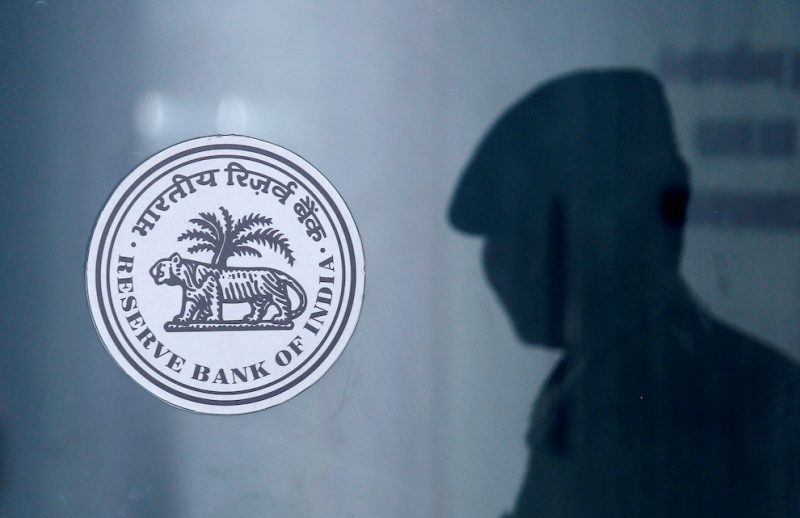India’s central bank hiked its key lending rate to battle surging inflation, shocking investors and triggering a stock market plunge.
The Reserve Bank of India increased the lending rate by 40 basis points to 4.4% after an unscheduled meeting of its monetary policy committee on Wednesday. Bond yields spiked and the rupee firmed as the central bank shifted to a decisively more hawkish stance.
The central bank also raised banks’ cash reserve ratio or proportion of deposits that banks need to set aside with the RBI as cash, by 50 basis points to 4.50% effective from May 21, 2022.
The NSE Nifty 50 index fell 2.29% to 16,677.60, while the S&P BSE Sensex dropped 2.29% to 55,669.03, with both indexes posting their biggest intra-day percentage loss since March 7.
India’s 10-year benchmark bond yield jumped to 7.41%, its highest level since May 2019, after the policy decision, while the rupee strengthened against the dollar to 76.26.
Despite the tightening, the MPC also unanimously decided to retain an accommodative stance to support growth.
‘Inflation Rising Alarmingly’
Governor Shaktikanta Das announced the first change in the repo rate in two years in a virtual address to the media.
“Globally, inflation is rising alarmingly and spreading fast. Geopolitical tensions are ratcheting up inflation to their highest levels in the last three to four decades in major economies, while moderating external demand,” the RBI governor said.
“The MPC judged that the inflation outlook warrants an appropriate and timely response through resolute and calibrated steps, to ensure that the second-round effects of supply-side shocks on the economy are contained and long-term inflation expectations are kept firmly anchored,” Das said.
“The biggest contribution to overall macroeconomic and financial stability, as well as sustainable growth, would come from our effort to maintain price stability,” he added.
ALSO SEE: India 10yr Yields Near 3-Year High on RBI’s Hawkish Tilt
Caught Unawares
Most analysts had expected rates to be raised at the next scheduled meeting of the six-member panel on June 6-8, and this week’s two-day meeting of the MPC caught financial markets unawares. The last time the RBI raised the repo rate was in August 2018.
The repo rate – for when banks borrow from the RBI – was cut to a record low in May 2020, when the economy was reeling from the onset of the pandemic, and the rate was held unchanged at that level at an MPC meeting last month.
“RBI felt compelled to act to restore its fast eroding credibility and anchor inflationary expectations,” said Ajay Bodke, an independent market analyst.
India’s 10-year benchmark bond yield jumped to 7.42%, highest level since May 2019, while the rupee strengthened against the dollar to 76.26.
Several traders said the RBI probably wanted to act ahead of the conclusion of a US Federal Reserve meeting later in the global day. Many analysts expect the Fed to raise rates by 50 basis points.
India’s retail inflation accelerated to nearly 7% year-on-year in March, its highest in 17 months and above the upper limit of RBI’s 2-6% tolerance band for a third straight month. The RBI’s medium term inflation target is 4%.
Das said the spike in inflation was largely due to the pressure on food prices, which were likely to remain high in the near term. April inflation data is due to be released next week.
• Reuters with additional editing by Jim Pollard
ALSO on AF:
Reserve Bank of India Tells 5 Banks to Issue Zero Coupon Bonds – ET
India’s Central Bank Maintains Key Lending Rate at 4%
Digital Rupee Will Help Cut RBI’s Operational Costs – ET
Tulips Worth More Than Crypto, RBI Chief Warns Indians
























